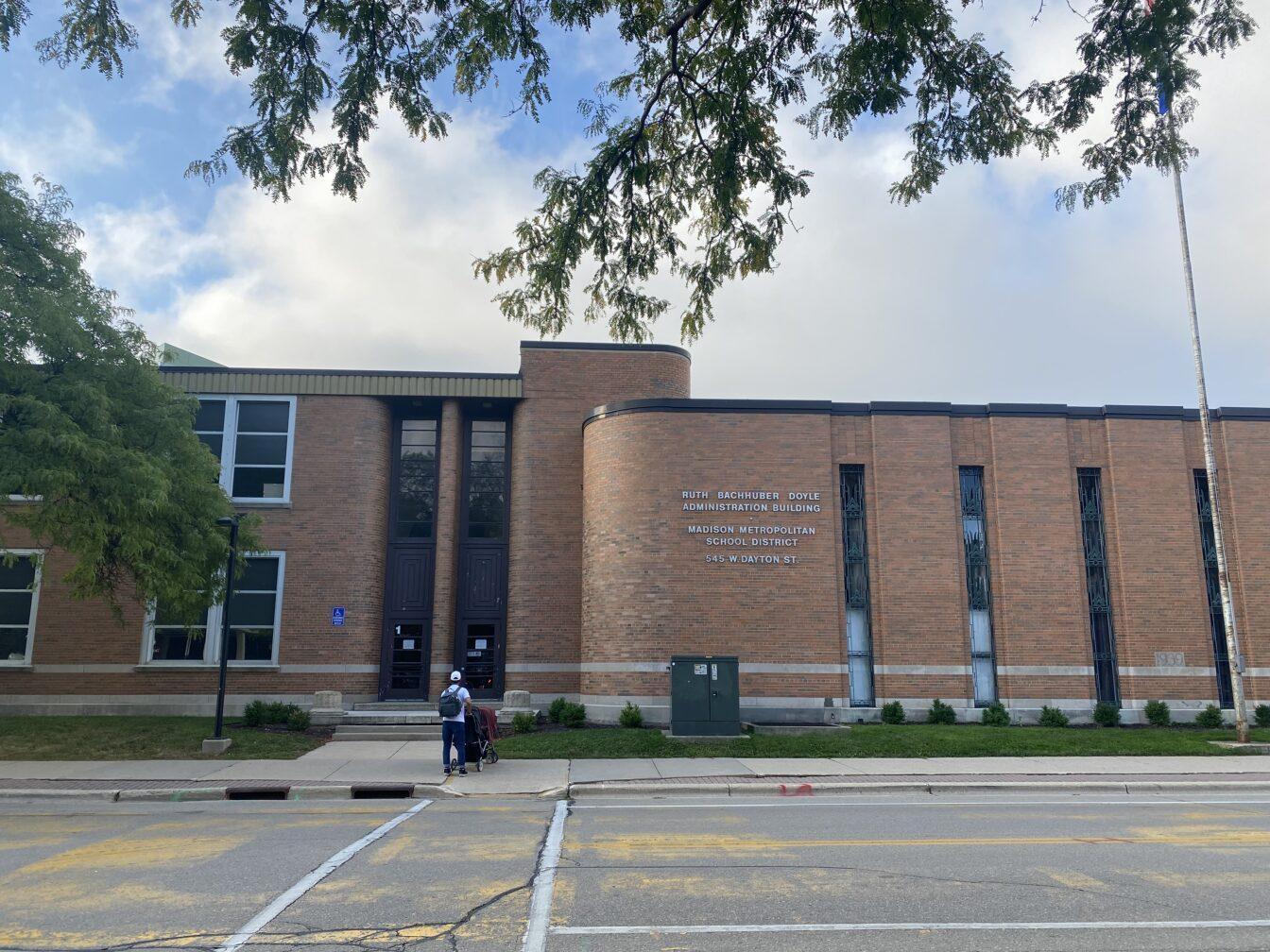The Madison Metropolitan School District is changing the way they handle misbehavior in the classroom.
In October 2021, the MMSD Board of Education created a temporary ban on suspending students. This decision was made in part due to the disproportionately high rates at which students of color and students with disabilities were suspended during the 2019-20 school year. This August, the school district made that change permanent.
Instead of suspensions, MMSD has implemented a Behavior Education Plan to transform misbehavior into valuable learning experiences by pairing appropriate consequences with additional support.
The plan operates under the Progressive Discipline model, which guides staff and administrators in responding to student behavior in an equitable manner. Schools are also required to develop plans for suspension alternatives, according to the MMSD website.
In an effort to achieve school safety and a well-disciplined learning environment, suspension has been a go-to disciplinary method since the 1960s. It was largely believed that temporarily removing a disruptive student from the classroom would both restore order and serve as a deterrent for future misconduct. But, new research by the Learning Policy Institute is shedding light on how this zero tolerance method is ineffective and inherently harmful.
Suspensions fall short in addressing the fundamental reasons behind students’ behavioral incidents. Instead of delving into the root causes of why students act out or misbehave, suspensions leave room for underlying issues to persist.
For instance, a hostile home environment, bullying in the classroom or desire for attention could all be sources of misbehavior. Consequently, students often return to the classroom without having their core challenges addressed, continuing a cycle of misbehavior.
Additionally, suspensions do little to encourage personal growth. Rather than equipping students with improved communication and conflict resolution abilities, suspension isolates them. Temporarily banning a student from the classroom is a missed opportunity for fundamental social, cognitive and academic skills.
Further, there is no other group that is more affected by suspensions than Black students.
Black students are 3.5 times more likely than their white classmates to be suspended or expelled, according to the U.S. Department of Education Office for Civil Rights. In Wisconsin, Black students are 6.7 times more likely to experience a disciplinary removal than white students. This racial disparity is not because of a difference in behavior. The issue stems from our long history of racism that causes black students to be unfairly targeted in schools.
The racial disparity in disciplinary methods in Madison is especially startling. Within MMSD, Black students make up 18% of the student population. But, nearly half of both in and out-of-school suspensions given in the first quarter of the 2021-22 school year were given to Black students.
Reducing this drastic disparity in behavioral punishments is part of MMSD’s goal for their new policy. In fact, more and more school districts are focusing on shifting from zero-tolerance punishments to more constructive methods that foster a better learning and emotional environment.
For example, there are three pillars of effective discipline, outlined by the Colorado Department of Education. Disciplining a student should be reflective, restorative and instructional.
Students should have the opportunity to reflect and gain insight into their misbehavior. They should have an opportunity to repair damaged relationships or items, and should learn the skills necessary to prevent future mishaps.
Some of the ways in which these pillars can be executed are through behavior plans and monitoring like creating a daily or weekly behavioral check in system or assigning research projects about why the incident was wrong. More options include students partaking in reflective tasks like creating a story about what they learned or involving themselves in community service activities.
Furthermore, on a statewide level, policy makers could improve the collection and reporting of discipline data and create incentives for districts to reduce suspensions. This would especially help diminish minor offenses.
State education boards can update their accountability plans to include school discipline as a nonacademic factor for district assessment. For instance, in California, districts that suspend more than 6% of their students are identified as needing improvement, and the state provides support to help them address this issue.
This is just one of the larger scale policy solutions outlined by a report done by the Learning Policy Institute and the Center for Civil Rights Remedies.
Overall, it is time for more school districts to reevaluate their approach to student discipline. There is abundant research on the counter-productivity and inherent harm of suspensions.
The historic reliance on suspensions has not yielded the expected results in creating safer schools or fostering a well-disciplined learning environment. Instead, it has perpetuated cycles of misbehavior and missed opportunities for growth.
Fortunately, there is a growing trend among school districts to move away from harsh punishments and towards more constructive methods that emphasize reflection, restoration and instruction. It is crucial to keep in mind that education should be about growth, inclusivity and empowerment — rather than exclusion and punishment.
Abbey Handel ([email protected]) is a sophomore studying journalism and political science.





















